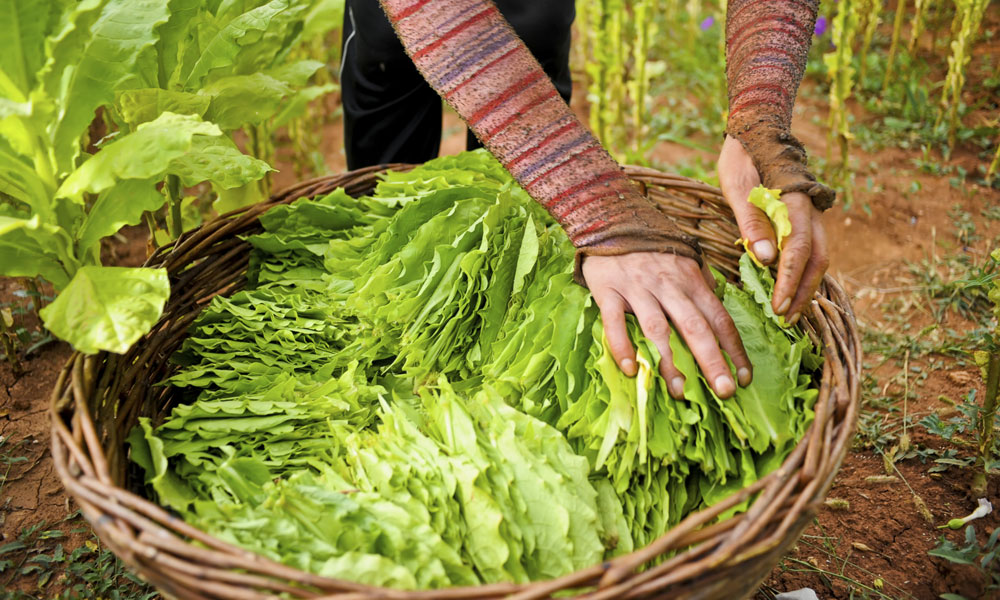
Tobacco Grower Associations Take Stand Against Child Labor
Earning praise from human rights advocates, two associations that represent tobacco growers are discouraging members from using children as laborers on tobacco farms, even though it is legal under U.S. law.
Two of the largest tobacco-grower trade groups in the country find themselves in an interesting place at the moment—winning plaudits from a prominent human rights group.
Months after Human Rights Watch (HRW) drew attention to tobacco farmers who use child laborers in the United States, two trade groups—the Council for Burley Tobacco (CBT) and the Tobacco Growers Association of North Carolina (TGANC)—adopted policies actively discouraging their members from using child workers.
Kids in the fields: In May, HRW published “Tobacco’s Hidden Children,” covering the use of child laborers in the tobacco-growing trade. Although children may legally work on tobacco farms under U.S. law, the report highlights the irony of kids helping to produce a product that they cannot legally use. Harvesting tobacco poses a series of dangers to child workers, according to the report, including the risk of injury from heavy machinery, exposure to pesticides, and the risk of acute nicotine poisoning (also known as “green tobacco sickness”). “Almost none of the children Human Rights Watch interviewed said that employers had given them health and safety training or protective gear,” the report states. “Instead, children typically covered themselves with black plastic garbage bags in an attempt to keep their clothes dry when they worked in fields wet with dew or rain.”
A strong reaction: Response to the 138-page report was swift: In June, 54 groups—the AFL-CIO, American Academy of Pediatrics, National Education Association, and Campaign for Tobacco-Free Kids, among others—sent a letter to several major tobacco companies requesting that they stop using child laborers. The story gained additional media attention from media sources, including The New York Times and The Guardian. Last month, two lawmakers—Democratic Reps. David Cicilline (RI) and Matt Cartwright (PA)—in a letter to Labor Department Secretary Thomas Perez, asked the agency to implement rules to block children from working in tobacco fields.
Associations change policies: Industry groups also reacted to the report. In July, Kentucky’s Council for Burley Tobacco passed a resolution opposing “the hiring of anyone under the age of 16 for work in tobacco anywhere in the world.” The Tobacco Growers Association of North Carolina recently followed suit, issuing a similar policy earlier this month and suggesting that employers “be cautious about employing 16- and 17-year-old workers in tobacco.” But in public comments in May, TGANC took issue with HRW’s description of the use of child labor as “unchecked,” saying it was rare. “If all 141 incidents in the HRW report had occurred in NC alone, that would be a ratio of .004 percent of the workers,” TGANC Executive Vice President Graham Boyd said. He added that the industry hopes eventually to produce “tobacco that is not touched by human hands.”
Nonetheless, HRW welcomed the associations’ policy changes. Children’s rights advocacy director Jo Becker called TGANC’s move “an important step toward ending hazardous child labor on U.S. tobacco farms.” But HRW suggested that the policies should apply to 16- and 17-year-olds as well and that the Obama administration should follow the associations’ lead.
“Industry groups are acknowledging the risks to children of working on tobacco farms and are adopting policies to help protect child workers from danger,” Becker said in a news release. “Now the Obama administration needs to act and address the gaps in U.S. law and regulations that put child tobacco workers at risk.”
(iStock/Thinkstock)






Comments